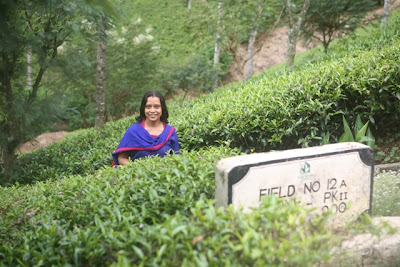Sunday, April 29, 2007
Sunday, April 22, 2007
family Pachyderm, order Proboscidea, class Mammalia, species Elephas maximus, subspecies Elephas maximus maximus (Sri Lankan elephant)
Posted by
Tom
at
09:11
0
comments
![]()
Tuesday, April 17, 2007
Photo etiquette?

Selvarasa Srirangan's father, Batticaloa, April 17 2007.
I hope you like this picture. It's the father of one of our drivers, sitting in front of his house. I asked his permission and snapped the shot last night when I thought the light was perfect.
I like the shot but there's another reason I'm posting it: to challenge a rule of etiquette. His wife died the night before and the family had cremated her two hours previously. When he'd greeted me he burst into tears and Sri's was trembling throughout my visit. So was it wrong for me to ask permission to take the picture? I don't believe there should be any firm rule. Of course, if the person asked is not free for politeness or another reason to answer honestly then it's wrong. But people (all over the world) often like being photographed and Sri's father admired the result in my camera's display. I think it's condescending to assume that a portrait shot is unwelcome.
Posted by
Tom
at
21:52
1 comments
![]()
Saturday, April 14, 2007
Temporary shelter in Arayampathi, Batticaloa

About 630 people have now been living in this school (which therefore can not operate) for nearly five weeks. 



They fled into this community near Batticaloa when government 'rebel clearance' (artillery fire and multi-barrel rocketry) directed at them made their homes and rice paddies unsafe.
Posted by
Tom
at
00:59
0
comments
![]()
Friday, April 6, 2007
The Truth About Tea
Dr. Khaleda Islam at the Tea Centre.
Two colleagues and I went to Nuwara Eliya last weekend and toured the Tea Centre at the Pedro Tea Estate which spreads for miles around this 2000m elevation respite from Sri Lanka's heat. We saw the whole factory process (photography not allowed) and of course ended up in the tasting room with fine china cups of the brightest orange pekoe I'd ever seen. Not that I'm a connoisseur because as it happens - I dislike most tea.
Anyway the machinery was marvelous (I love this stuff) - especially a big grinding machine that moves a top half around an eccentric over a lower half with spiral ridges that grinds or pulverises or in some other way really beats up the tea. One room of the factory was about 40 degrees C. and another was filled with fine dust that Dr. Khaleda is sure is dangerous. We asked why the workers don't wear masks and were told that it's too hot to wear them comfortably.
Our colleague Dr. Ravi revealed more back in Batticaloa. He used to work in Nuwara Eliya, treating the thousands of women that pluck tea for cuppas around the world. They earn 150 to 180 Rupees a day (less than USD $2) when they start and will work for decades without an increment. They are not given time off for medical care. They tend to injure their necks and backs (from carrying bags of tea with tump lines) and suffer abrasions and arthritis in their hands.
What is there left to drink?
Posted by
Tom
at
14:12
0
comments
![]()








